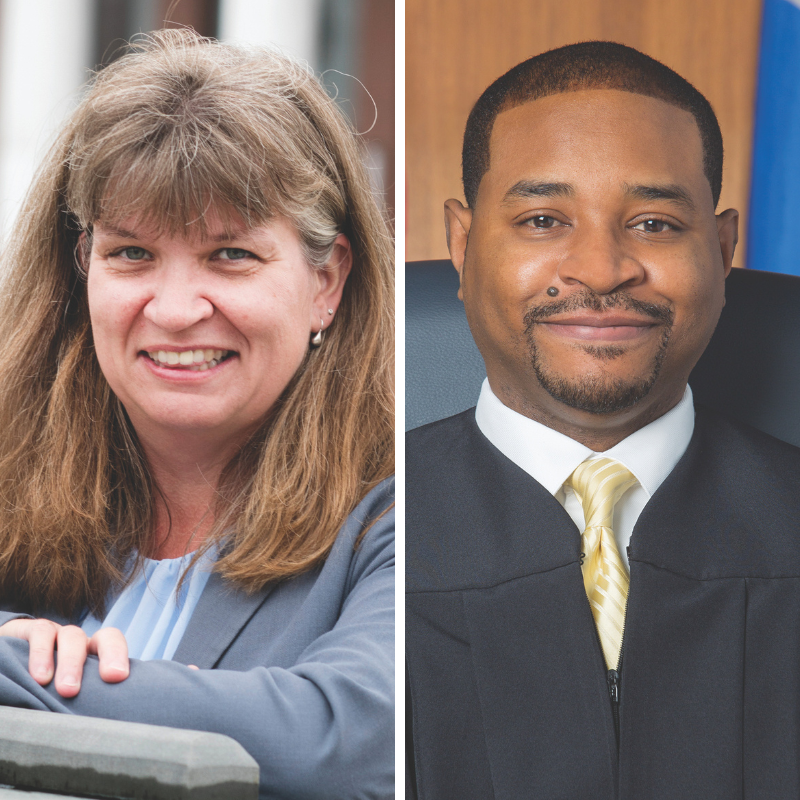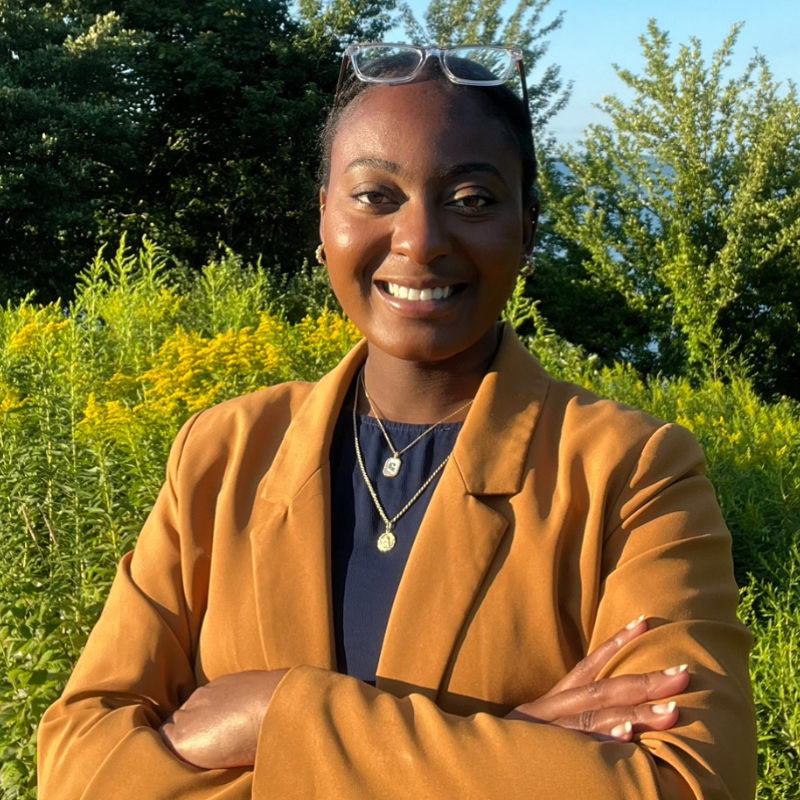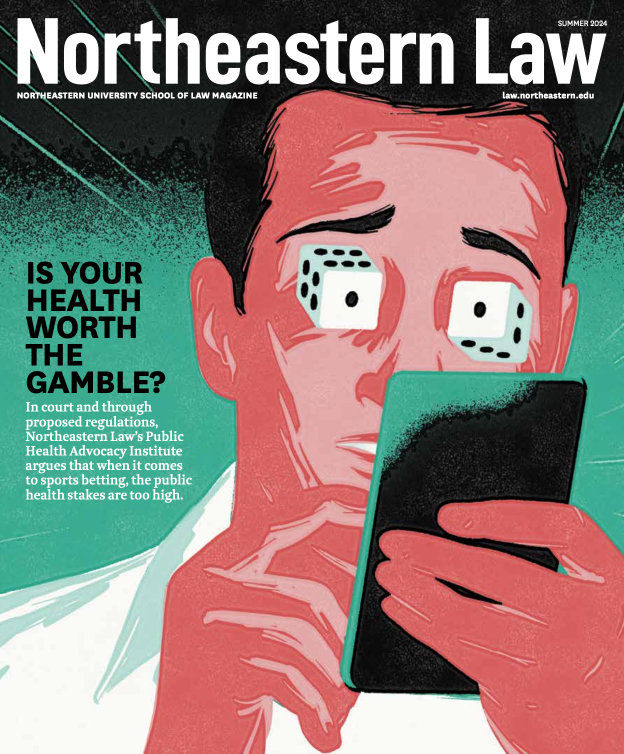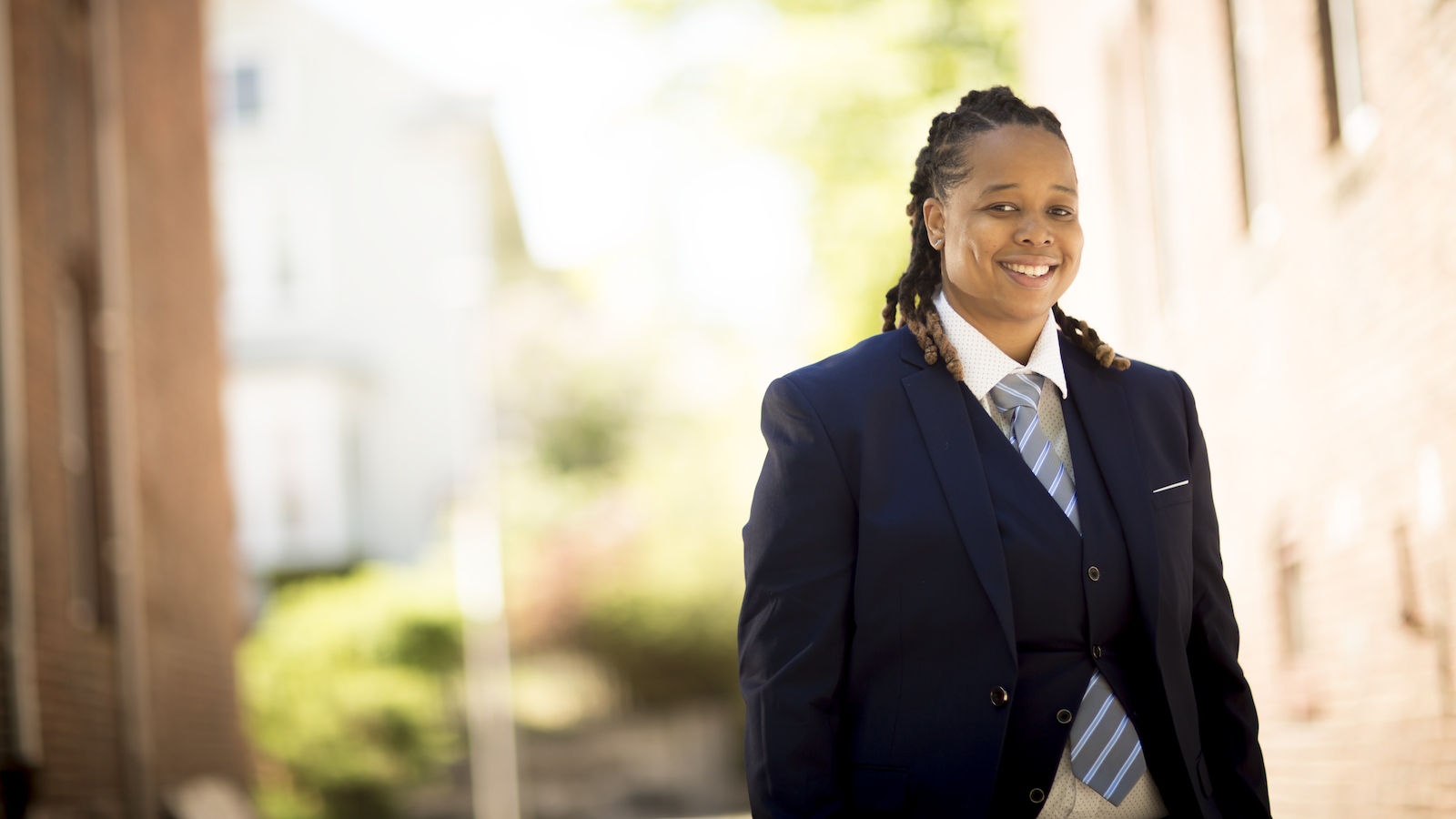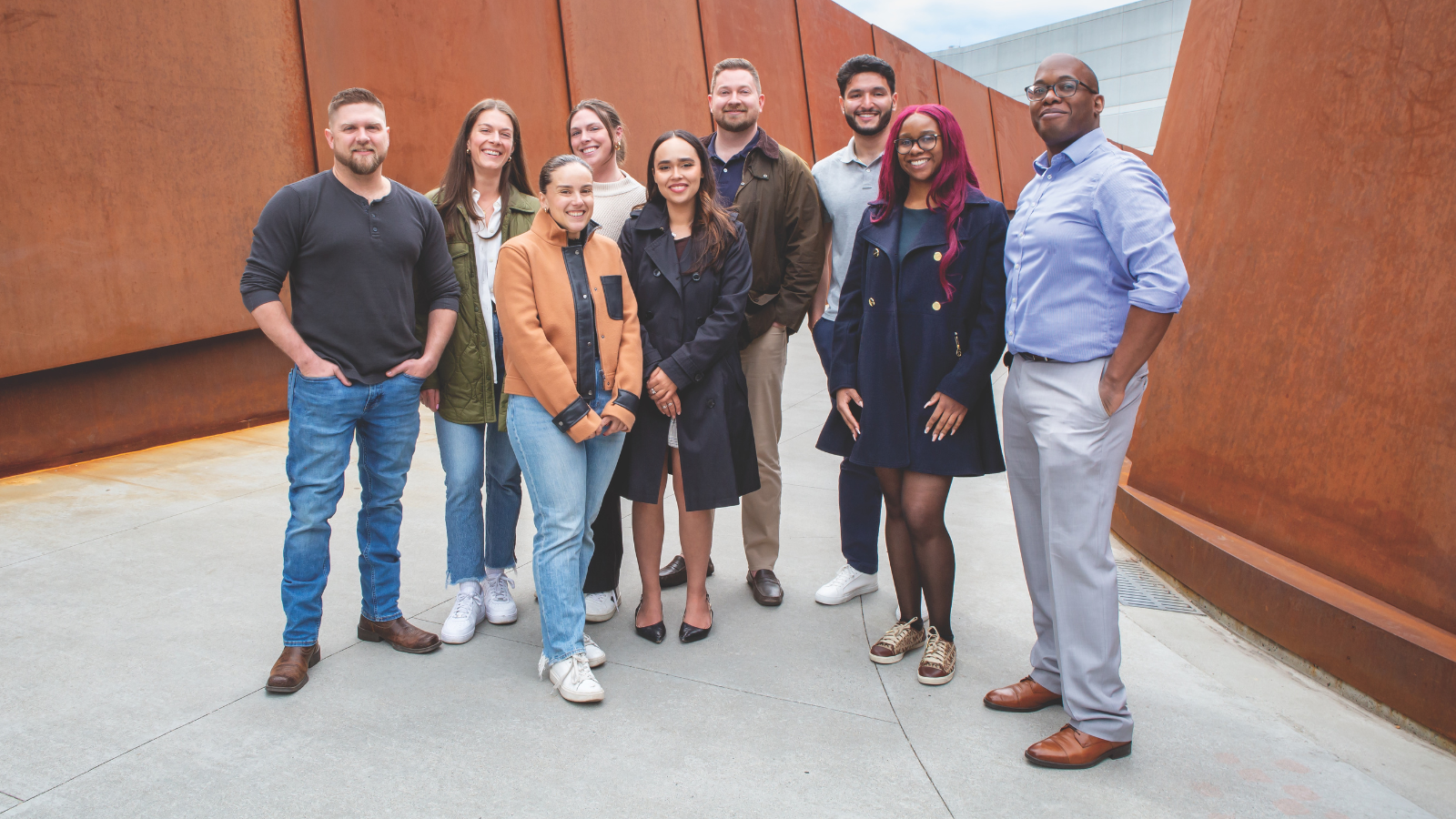
BUILDING BRIDGES IN THE COMMUNITY: The Community Business Clinic includes (from left) Joshua Affron ’25, Lily Reposa ’25, Hannah Cutler ’25, Hanley Higgins ’25, Chantel Cohen ’25, Leo Sheehan ’24, Isaiah Barrientos ’25, Merissa Spaulding ’25 and Professor Evan Darryl Walton.
Photographs by John Soares
Getting Down to Business
Northeastern Law’s Community Business Clinic provides students with transactional experience while simultaneously meeting the needs of underserved entrepreneurs and start-ups.
BY JERI ZEDER
Makeup artist and entrepreneur Ann Marie Laurendeau was facing a crossroads. After a long, successful career traveling the country, plying her trade for television and video, photo shoots, theater, celebrities, live events and more, Laurendeau saw it all come to a halt during the pandemic. Still passionate about her work and contemplating her future, she decided to rebrand her business, Anemone Makeup.
Laurendeau shifted her business from media production to mentoring the next generation of makeup artists and teaching the art of makeup to the general public through public library and community programs for teens and adults.
With limited resources to fund the legal expertise and assistance required for this new endeavor, Laurendeau turned to Northeastern Law’s Community Business Clinic (CBC), which is both a law school class and a legal aid office where students study transactional law while providing, under the supervision of Professor Evan Darryl Walton, free legal services to qualifying start-ups, entrepreneurs and small businesses.
The CBC students helped Laurendeau reorganize from a sole proprietorship to an LLC, drafted a terms and conditions agreement for her new website, updated her independent contractor agreement and prepared a nondisclosure agreement. “They treated me with the utmost respect and made me feel like I was their most important client,” says Laurendeau. “The rebranding costs were higher than I anticipated and were depleting my working capital. I don’t know how I would have done it if that type of help wasn’t available to me.”
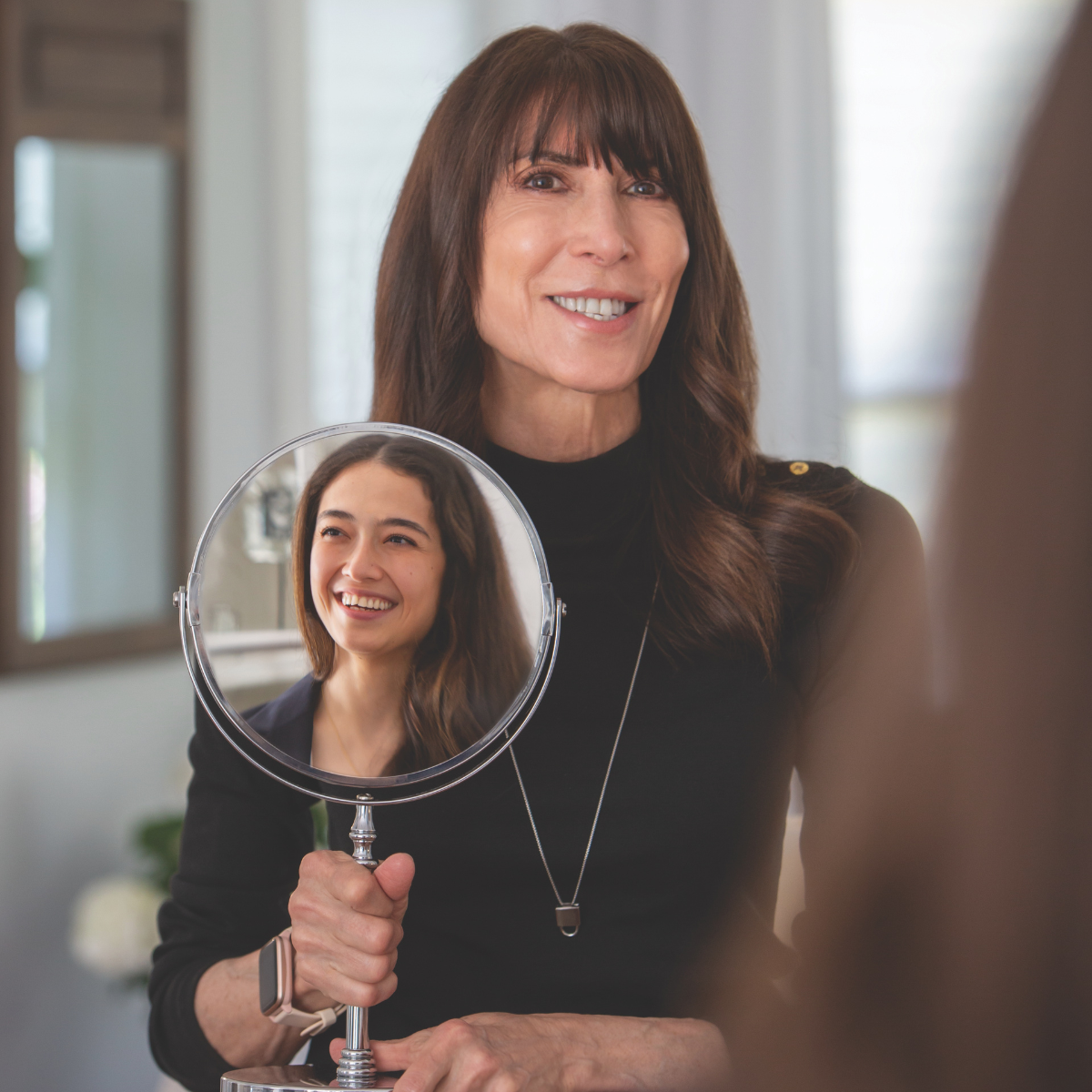
ABOUT FACE: Ann Marie Laurendeau, owner of Anemone Makeup, worked with Sevara Akhmadalieva ’24 (reflected in mirror) to reorganize her business.
The rebranding costs were higher than I anticipated and were depleting my working capital. I don’t know how I would have done it if that type of help wasn’t available to me.
Meeting the Need
Northeastern Law’s clinics, which take place during academic terms under faculty supervision, complement the school’s signature Cooperative Legal Education Program, through which students work in full-time positions under the direction of attorneys and judges across the globe. Together, clinics and co-ops provide Northeastern law students with unparalleled opportunities to gain practical training year-round while working for a wide range of clients and organizations.
The community need for services like those offered by the CBC is profound. As Boston’s women-, Black- and Latino-owned businesses transition to the post-pandemic economy, the news is decidedly mixed. A recent Wells Fargo report counts Boston among the top 10 US cities for women entrepreneurs, but a report from The Boston Foundation finds that Black- and Latino-owned businesses in the city, which suffered disproportionately during the pandemic, continue to struggle. They received less help than white-owned businesses from the federal safety net Paycheck Protection Program, and they have more trouble attracting investment. “All told,” the report says, “entrepreneurs of Massachusetts have $574 million of unmet capital demand annually.”
The CBC is part of an ecosystem of Boston organizations working on business development in many economically disadvantaged communities. Before Walton took over as clinic director two years ago, the CBC primarily served Lynn, a small city nine miles north of Boston. Without abandoning the needs of the greater metropolitan area, Walton has refocused the clinic on the Roxbury, Dorchester and Mattapan neighborhoods of Boston. “We want to help those who are closest to us and those who have traditionally been excluded from legal services,” says Walton, who was once himself a small business owner and knows firsthand how daunting it can be to build a business while navigating its legal requirements. “We’re hoping to show that Northeastern is a good neighbor,” he says. The change also benefits students, allowing them more in-person encounters with clients.
One of Walton’s goals is to rethink impact. “The Community Business Clinic is a nine-person law firm. It’s myself and eight students. We’re limited in our capacity to do direct representations,” he says. “So we’re looking at other opportunities to expand that capacity through avenues like community presentations and the creation of resources that, once they’re completed, live on and reach more people.” Students have presented to community groups, and they are developing a Q&A series that will be public on the CBC’s website. Walton envisions the website providing information in several languages, along with basic legal forms and links to additional resources.
Walton is also expanding the CBC’s range of community partnerships. With Northeastern Crossing, a university initiative benefiting residents in surrounding Boston neighborhoods, the CBC is holding one-day clinics for local existing and aspiring nonprofits and accepting several as longer-term clients. In response to a new state program covering doula care for maternity patients, the CBC is providing legal advice to doulas (professionals who offer emotional, physical and informational support to new and expectant parents before, during and after birth). Walton also serves as a faculty mentor to a legal fellow embedded with Northeastern’s Roux Institute, which seeks to build a technology innovation corridor between Boston and Portland, Maine.

AHEAD OF THE PACK: Samantha Rodriguez ’24 (left) with Professor Evan Darryl Walton helped Hannah Ung DMSB ’23 set up her start-up Boxy as a C corporation.
The clinic students were a pleasure to work with. They taught me a lot in terms of the legality of things that I wasn’t really aware of, even down to the difference between an LLC versus a C corporation.
Transformative Transactions
At its core, the CBC is where a small group of students spends a semester learning, hands-on, the ropes of transactional law. Students must apply for admission to the clinic. Sevara Akhmadalieva ’24 applied because of the CBC’s emphasis on the “importance of creating a relationship with a client that’s built upon trust and respect, being mindful of your role and their situation,” she says. CBC students work in teams of two — Ann Marie Laurendeau was the first client Akhmadalieva and her partner interviewed. “It was really easy working with Ann Marie,” Akhmadalieva says. “We saw how much passion she had for her business and how much it meant to her, and we were very happy to help her in her journey.”
Akhmadalieva thrived under Walton’s collaborative teaching model. “We were never given answers by our supervisor,” she says. “Instead, he encouraged a relationship of cooperation and partnership among our classmates and partners, guiding us toward the best solution for our clients.”
As they would in a real law firm, students manage their own time, plan and execute their tasks, and record and account for the 25 hours they spend each week on clinic work. They keep reflective journals, bring forward challenges they encounter in their cases for class brainstorming sessions and take on non-client activities that further the CBC’s community mission. They learn legal reasoning, professional ethics, how to counsel and communicate with clients and the art of collegial teamwork.
Walton mentors his students through weekly check-ins and class discussions. He meets with each student individually for a mid-semester review to evaluate progress and set goals for the remainder of the term. In addition to subjects like entity formation, nonprofit law, contracts, negotiations, employment law and intellectual property, Walton emphasizes soft skills.
“We cover topics like initial client interviewing and how it differs from client counseling. We talk about mental health,” he says. “We also talk about our representations in terms of bias, understanding cultural differences and understanding our place in those representations.” Walton consciously works on helping students build confidence. “My goal is to help them work through imposter syndrome and work through feeling like they don’t belong or they’re incapable. So we run a range of activities to accelerate each person on their own individual path toward where they need to be in order to be impactful in the future,” Walton says.
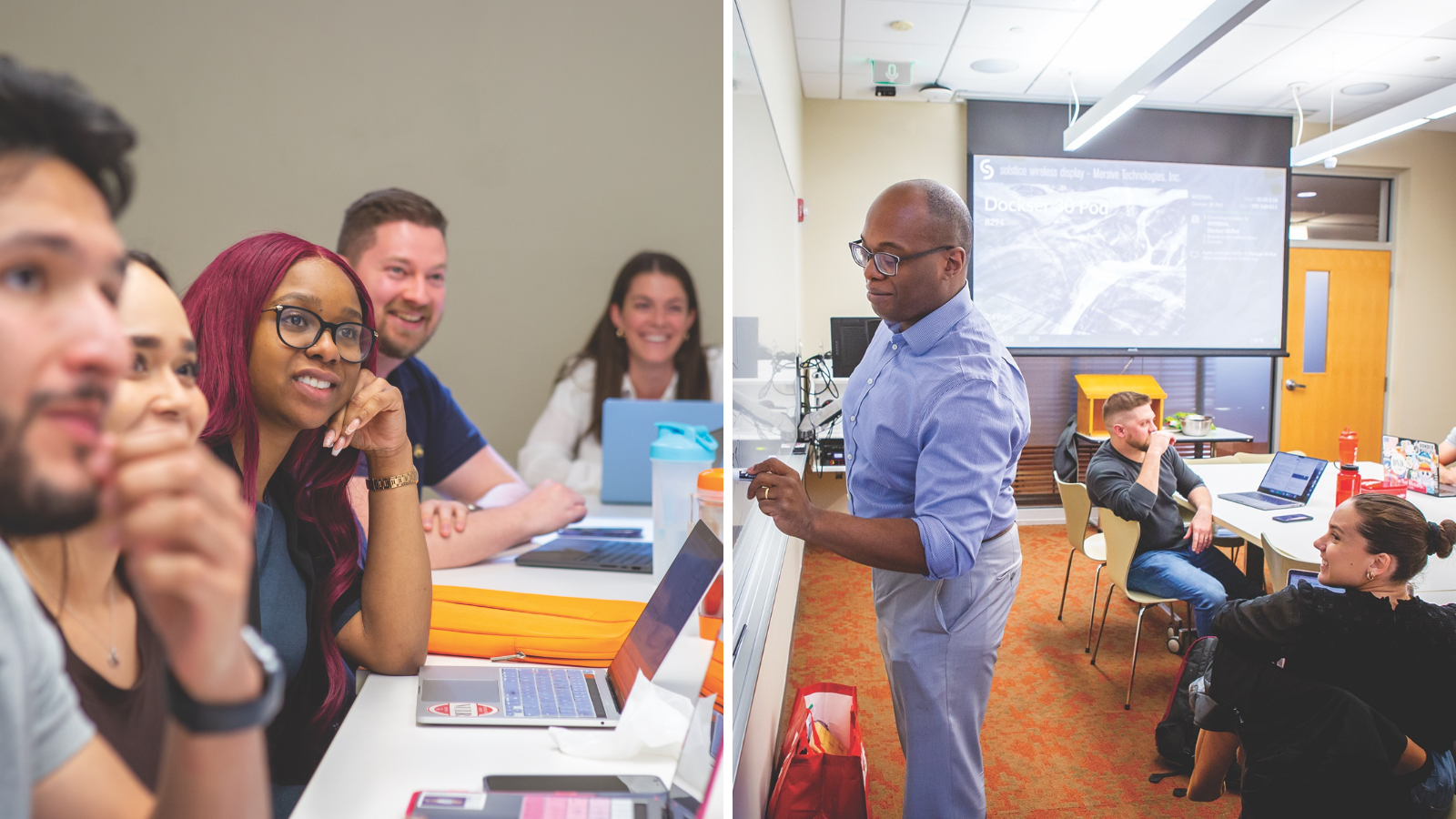
Professor Evan Darryl Walton and students meet weekly for progress reports and to discuss challenges.
In addition to serving community clients like makeup artist Laurendeau and the aspiring bakery, photography, cleaning, dance studio, composting and other micro-enterprises of Boston, the CBC counsels Northeastern undergraduate students who are forming STEM- or tech-based startups. One of them is Hannah Ung DMSB ’23, a business student who founded Boxy, an app connecting college students to homeowners with extra space to keep their stuff over summer break — sort of an Airbnb for storage. The CBC helped Ung organize Boxy as a C corporation, reviewed its terms and conditions agreement, and ensured that Boxy had a sturdy legal springboard to propel it forward.
As a self-funding entrepreneur, Ung says, “I found it extremely helpful because I am aware that these services could cost a lot of money.” The clinic students, she says, “were a pleasure to work with. They taught me a lot in terms of the legality of things that I wasn’t really aware of, even down to the difference between an LLC versus a C corporation.”
CBC student Samantha Rodriguez ’24, who advised Ung, embraced helping her clients set up their businesses for success. “I was impressed with the sheer level of creativity and the fact that someone could take something so simple and make a very innovative business model out of it,” Rodriguez says. “Sitting in a classroom, learning the law and applying it on a final exam is a very different thing than actually doing the work and interacting with clients. I enjoyed my classes, but my experiences with the clinic and the opportunity to form working relationships was the highlight of my time at Northeastern.” What Rodriguez describes flows naturally from Walton’s cultivation of the CBC’s mission: enhancing student learning while serving those whose legal needs might otherwise go unmet. “I’m proud of the work that our students have done and will continue to do,” Walton says.
About the Author
Jeri Zeder is a contributing writer.
Share
Cecile Tchoujan ’24 is helping start-ups and entrepreneurs with business formation and a variety of related legal related matters as the 2024–2025 Roux Institute Legal Fellow.


